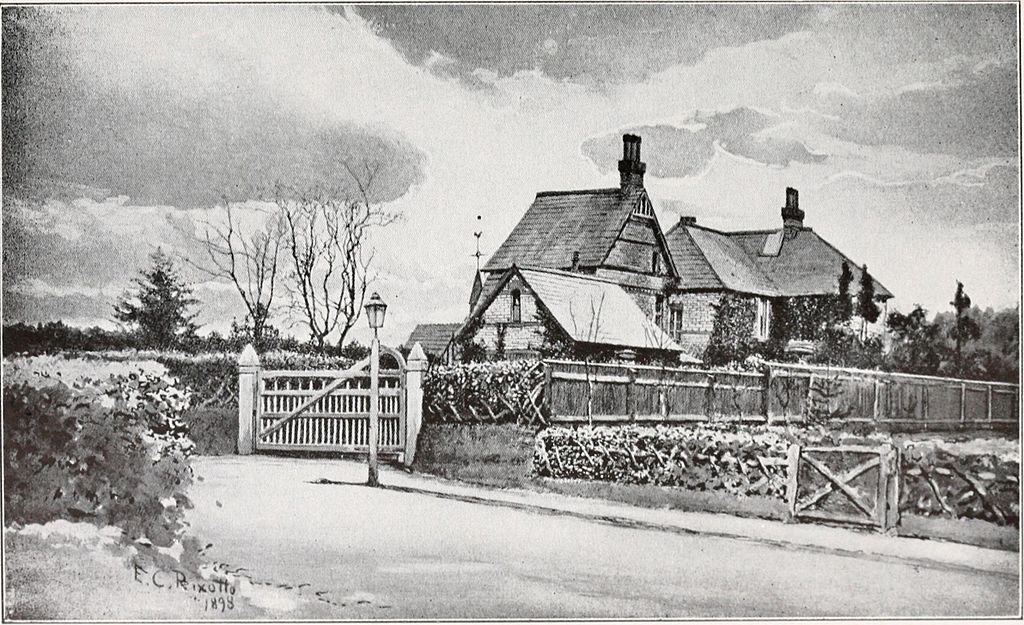Robert Louis Stevenson in Bournemouth

Good morning. Robert Louis Stevenson’s short time in Bournemouth, where he developed an epistolary friendship with Henry James, was one of the most productive periods of his life. Andrew O’Hagan tells the story in The London Review of Books: “‘Remember the pallid brute that lived in “Skerryvore” like a weevil in a biscuit,’ Stevenson wrote. Yet his three years there, the only period he spent in England, were the best years of his writing life, giving rise to a group of masterpieces as well as several mysteries about his own life. In Bournemouth, Stevenson found the core of his talent. It all started with a spirited exchange in print with Henry James. In September 1884, when Stevenson was new to that oasis of convalescents, he picked up a copy of Longman’s Magazine, which carried James’s essay ‘The Art of Fiction’. He knew James only at a distance, and admired him. Stevenson, who had published Treasure Island the year before, was 33, beloved of readers and worshipped by his friends; James was 42, known mainly for The Portrait of a Lady and Daisy Miller, examples of the ‘international theme’ he’d mined with such singularity. He was a solitary figure, an arch-stylist who appeared to live as a ghost in the varnished rooms of his own sensibility. ‘Singleness consorts much better with my whole view of existence,’ he wrote to his friend Grace Norton. He had always been charmed by Stevenson’s style, though he felt that Stevenson was a ‘shirt-collarless Bohemian’ and something of a ‘poseur’ . . . The friendship blossomed in letters. ‘My Dear Robert Louis Stevenson,’ James wrote on 5 December 1884, telling him what a luxury it was, ‘in this immoral age, to encounter someone who does write – who is really acquainted with that lovely art’.”
In other news: ESPN’s new Lance Armstrong documentary to be released in two parts—the first on May 24th. Here’s the trailer.
A French serial-killer expert confesses to being a serial liar: “Stéphane Bourgoin is the author of more than 40 books and is widely viewed as a leading expert on murderers, having hosted a number of French television documentaries on the subject. He has claimed to have interviewed more than 70 serial killers, trained at the FBI’s base in Quantico, Virginia, and that his own wife was murdered in 1976, by a man who confessed to a dozen murders on his arrest two years later. But in January, anonymous collective the 4ème Oeil Corporation accused him of lying about his past, and Bourgoin has now admitted to the French press that the wife never existed. He also acknowledged that he never trained with the FBI, never interviewed Charles Manson, met far fewer killers than he has previously claimed, and never worked as a professional footballer – another claim he had made.”
Many companies may allow employees to continue to work from home. How will this affect cities?
Simon & Schuster CEO Carolyn Reidy has died. She was 71.
Max Carter reviews Sarah LeFanu’s Something of Themselves: Kipling, Kingsley, Conan Doyle and the Anglo-Boer War: “Something of Themselves makes for elegant and moving group biography, remedying various degrees of neglect and misjudgment. Kingsley has been overlooked, Conan Doyle overshadowed, and Kipling deplored—though never forgotten. His moral and spiritual lessons from the war live on in the stirring conditionals of ‘If’ (1910), which were inspired not by the pluck of the Boers but by his friend, their bogeyman, Dr. Jameson.”
Alexander Larman complains that book reviews have become merely a way for reviewers to display their erudition. They should be a way for reviewers to give their opinions on “the merits and virtues, or the flaws, of [a] book in an interesting and original fashion.” I agree in part. At the same time, there is a species of review that merely uses a book as an opportunity for a gifted writer to handle a given topic. This is OK, too. Not all books are actually worth evaluating in detail.
Photos: John Cage looks for mushrooms
Receive Prufrock in your inbox every weekday morning. Subscribe here.
Comments